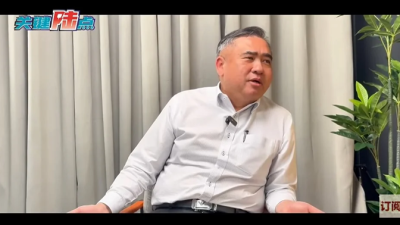
The 60th Munich Security Conference’s annual report, titled “Lose-Lose?” marks a significant shift from the “best times” of globalization to what is now being called the “worst times.”
The transition signifies a departure from the focus on absolute gains and mutually beneficial cooperation among economies to an era dominated by relative gains and geopolitical competition.
The concept of “lose-lose” encapsulates this shift in the international system’s underlying logic.
For more than a decade, the MSC has set its theme in its annual reports, with recent years’ reports highlighting themes such as “post-truth, post-West, post-order.”
However, this year’s report delves deeper into the global dynamics, emphasizing the “lose-lose” dilemma that stems from the flawed post-war order.
It reflects the discontent of the countries of the Global South and the Global North, as the former have not received their due benefits and the developed Western countries resent their shrinking share in the global economy and diminishing say in global governance.
This narrative draws from the cultural roots of Western civilization, which considers human nature and power as inherently evil, leading to a zero-sum mindset and a lose-lose outcome.
The rhetoric employed by the conference’s organizers mirrors the strategy of predicting the worst possible outcome while reluctantly accepting the reality of the case, akin to a physician’s prognosis.
By using global concerns to advantage and resorting to rhetoric, the MSC aims to promote peace through dialogue amid growing geopolitical rivalry and economic uncertainty, the MSC Ambassador Dr. Christoph Heusgen thus stated.
However, behind the creation of terminologies lies the intent to generate momentum.
Cold War-era narratives of “democracy vs. authoritarianism” have resurfaced, seeking to unite the West against perceived adversaries such as China, Russia and Iran.
The MSC’s increasing focus on China is an open secret, with concepts like the “Global South” and “de-risking” being popularized to deny China its developing country status and force it to follow stricter terms of competition.
Allegations and probes against China’s industries, such as investigations into Chinese electric vehicles and rumors of China using “forced labor” in industries in the Xinjiang Uygur autonomous region, are aimed at destabilizing China’s economy.
Recent MSC sessions have seen discussions on “democracy vs authoritarianism,” which are aimed at not only disrupting China-Europe relations but also politicizing the conference, and portraying NATO and the European Union as organizations and economic blocs against authoritarianism.
The tragic consequences of misinterpretation of international dynamics in the past, as evidenced by major events such as the Russia-Ukraine conflict, underscore the importance of avoiding self-fulfilling prophecies and misjudgments.
Instead, there is a need to engage in meaningful dialogue and understand the complexities of international relations.
The creation of discourse, the Western powers claim, is aimed at uniting the West, targeting opponents, and promoting a “rules-based international order.”
I was present at the conference and highlighted China’s significant role in the global supply chains and the global fights against climate change.
However, Western concerns over the security of the global supply chains and attempts to decouple from China risk disrupting global trade and forcing the economies into a lose-lose situation, as emphasized in this year’s conference report.
Western accusations — that China’s “win-win” strategy is actually “China wins twice” — have now shifted to a narrative of “lose-lose.”
However, these actions ultimately lead to losses for Western countries, as evident in the Russia-Ukraine conflict.
Such irresponsible behavior of Western politicians disrupts market rules and undermines the future of globalization, posing a risk to global stability and prosperity.
Addressing climate change requires global cooperation, recognizing China’s significant role as the world’s factory.
However, the West’s efforts to reduce their reliance on China’s supply chains will increase costs and carbon emissions globally.
China’s per capita emissions are still low despite the country being the “global factory,” something which the Western countries cannot achieve.
In conclusion, the West’s limited understanding of global realities, influenced by politicians’ rhetoric, underscores the need for a more comprehensive understanding and collaborative approach to address global challenges.
By avoiding misjudgments, fostering dialogue and promoting cooperation, the international community can navigate the complexities of the evolving global landscape and work toward a more stable and prosperous future for all.
ADVERTISEMENT
ADVERTISEMENT








































